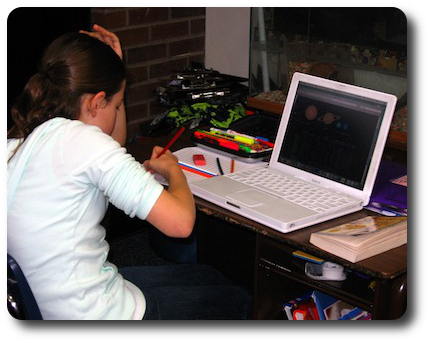
By Evan Fischer
Sponsored Guest Contributor
For parents that don’t use the Facebook, the amount of time teens, tweens, and even younger kids spend on the preeminent social network can be daunting. You might wonder if it’s safe for them to utilize this tool as a means of communicating with “friends”, many of whom could be strangers or even predators. For those adults more intimately familiar with some of the “stuff” that occurs on Facebook and the dangers associated with inappropriate posts and pics, the level of anxiety is probably even higher. But just as your parents feared the influence of television, video games, and perhaps even the internet and cell phones on your developmental prospects, you are fated to question the latest technology to fall into the hands of your kids. But that doesn’t necessarily mean you need to deny them access to this fantastic tool for communication.
Here are just a few and very easy ways to ensure your kids behave safely while using online social networking sites.
- Demand privacy settings
You’re probably going to want to set some ground rules when it comes to social networking, regardless of the age of your children. The place to start is with privacy settings. Kids are apt to say and do stupid things occasionally; this is how they learn and grow. But you don’t want those mistakes to be open to public scrutiny or haunt them for the rest of their lives if you can help it. Requiring them to use strict privacy settings when operating in the social networking arena should therefore be the first step in your plan for safety. Luckily, Facebook agrees with this policy (thanks to an FTC ruling) and they have provided settings specifically for the under-18 crowd. - Talk about TMI
For the uninitiated, TMI is “too much information”, and kids aren’t always aware of where the line is when it comes to posting personal information on this highly visible forum. It is in your best interest (and theirs) to explain why you don’t want them revealing their full name, birth date, address, phone number, current whereabouts, or upcoming plans via Facebook. When you explain that this dangerous activity could harm not only them, but everyone in your household, perhaps they will take more care with the information they divulge. - Friend your kid anonymously
This is admittedly a little underhanded, and kids that catch you in the act will no doubt be hurt by your lack of trust (no matter how deserving your position). However, it can be a good way to see what your kids are up to in cyberspace and ensure that they’re not behaving inappropriately, engaging in dangerous activities, or releasing sensitive personal information. - Be aware of cyberbullying
One of the biggest threats in cyberspace these days comes not from online predators, but from your child’s peer group. Cyberbullying has become a major problem on social networking sites and you need to be aware that your kids could not only be the victims of such attention, but they could also be the perpetrators. See Cyberbullying.us for some great resources for parents and educators. - Teach kids to think before they post
As a parent, your best bet for protecting kids is to give them the knowledge and skills they need to make informed decisions for themselves. Although this “click here” generation has grown to expect instant gratification, teaching kids to take a moment to consider the potential consequences before they post something will help them more than reprimanding them after the fact.
About the Author:
Evan Fischer is a freelance writer and part-time student at California Lutheran University in Thousand Oaks, California. He enjoys writing about the latest tech news for a variety of companies and discovering new and innovative gadgets.

